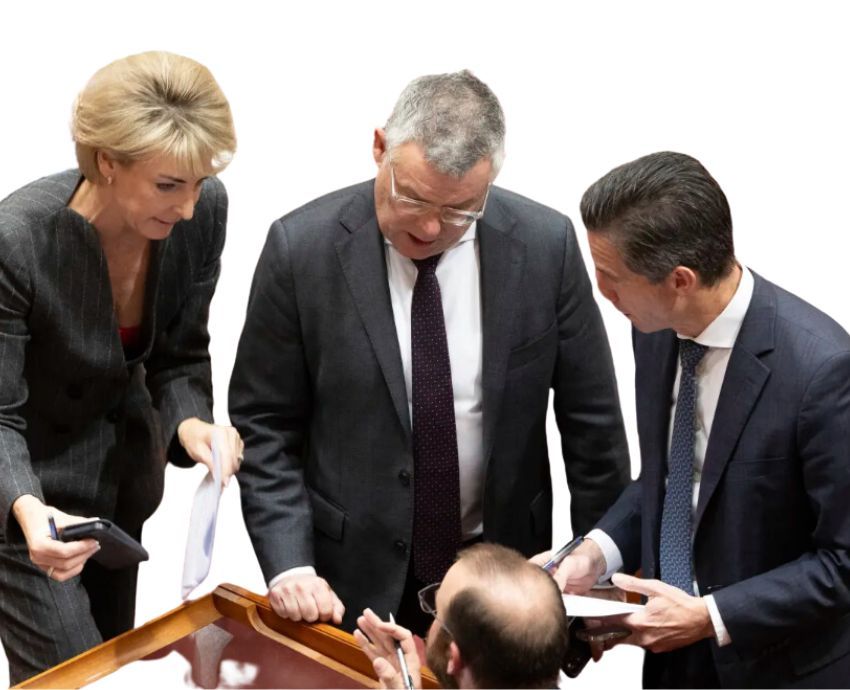
The federal Labor government’s laws appointing an administrator with absolute dictatorial powers to run every branch of the Construction Forestry Maritime Employees Union (CFMEU) is the most serious attack on a union in living memory.
Labor’s attack serves two purposes.
The first is to smash workers’ power in the construction industry to boost building companies’ profits. The consequence will be a loss of livelihoods and lives.
The second is to get rid of a potent example of militant unionism.
Only a fool could fail to see that if the law is not resisted, it will set an extremely dangerous precedent: this wrecking ball could be unleashed on any union.
Does anyone think that when the Coalition next takes office the unions factionally aligned with Prime Minister Anthony Albanese in 2024 will get some special exemption?
If we don’t fight this then any democratic membership organisation in the country could have its elected leaders thrown out of office and its assets seized.
Why wouldn’t Opposition Leader Peter Dutton also shut down organisations he claims are breaking the law, with the chorus of capitalist media outrage providing “context”?
It could be a climate campaign, whose activists engage in peaceful blockades of new fossil fuel projects, or a Palestine solidarity group disingenuously accused of inciting antisemitism.
Everyone’s rights hang in the balance.
Such a serious restriction of workers’ rights by a Labor government is no aberration.
Labor has led the charge with some of the most serious attacks on militant unions: Labor used the army to scab on striking coal miners in 1949; Labor deregistered the Builders Labourers Federation in the 1980s; and Labor used the air force to scab on striking pilots in 1989.
Most damaging of all, Labor, in collaboration with the Australian Council of Trade Unions (ACTU), enforced the Accord on workers from 1983 to 1996: that tripartite pact with the bosses caused a massive contraction in the wages share of national income and it led to an inevitable collapse in union density as they stopped fighting for wage rises.
Just as seriously, in most industries a generation of workers has lost the experience of how to organise industrial action.
This history reveals the true function of Labor in relation to the union movement; its job is not to represent unions and their members, but to keep them on a leash — to play soft cop to the Liberals’ hard cop.
Labor is uniquely placed to perform this role because of its institutional links to the union movement.
The ACTU is part of this web of control, working to ensure that unions restrict their demands and actions to what’s acceptable to Australian capitalism and Labor’s electoral strategy.
While the Liberals huff and puff about union “bosses” controlling Labor, workers face the opposite problem. Its Labor’s conservative orientation that stifles union militancy and holds us back.
Labor’s special role in safe-guarding Australian capitalism became inevitable as working people won the right to vote, in the late 19th and early 20th centuries, in a country with strong union movement at the time.
The right to vote meant there was a need for at least two pro-capitalist parties that can alternate in office to reliably protect capital’s interests.
None of this is to say that Labor wants to completely abolish unions, either in general or in the construction sector. Labor wants to retain the CFMEU in name only, forcing it to be a tame-cat union.
Most of the CFMEU’s alleged corruption claims arise from union organisers visiting worksites without giving the bosses any notice, ensuring workers have joined the union and being prepared to take industrial action for rights and safety.
The most fundamental right of any worker is their right to withdraw their labour.
Every improvement to wages and conditions workers enjoy ultimately derives from this.
It’s for this reason that the International Labor Organisation recognises that the right to strike is a right of all workers; laws that restrict this right are the problem, not workers exercising that right.
In an industry such as construction, characterised by short-term employment and riddled with cockroach bosses, workers have only been able to win decent wages and conditions with their militant approach.
When the ACTU executive suspended the CFMEU on the basis of lurid headlines and unproven allegations, Albanese had all the ideological cover he needed to launch an assault.
Words cannot adequately describe Labor’s misleadership in subordinating workers’ interests to its tame cat union plan.
While some unions may be engaged in Labor’s factional squabbles and demarcation disputes with the CFMEU, settling scores this way can only damage all workers.
When Murray Watts, the new workplace relations minister, swapped out Labor’s earlier plan for a court-appointed administrator in favour of a union-busting law, the Liberals could only salivate. Making it worse, Labor even agreed to their key amendments.
This frontal assault on the rights of workers to democratically organise and run their own organisations must be opposed by every unionist and union supporter.
The right to strike in Australia has always been severely restricted and criminalised by both Labor and Liberal governments. Socialist Alliance is committed to helping construction workers preserve and rebuild militant democratic union traditions.
If you don’t fight, you lose!
[The WA CFMEU has called a rally on August 27, 11am at Forrest Place in Boorloo/Perth. Sam Wainwright is a national co-convenor of the Socialist Alliance. He is a former member of the Maritime Union of Australia and is now a disability support worker.]